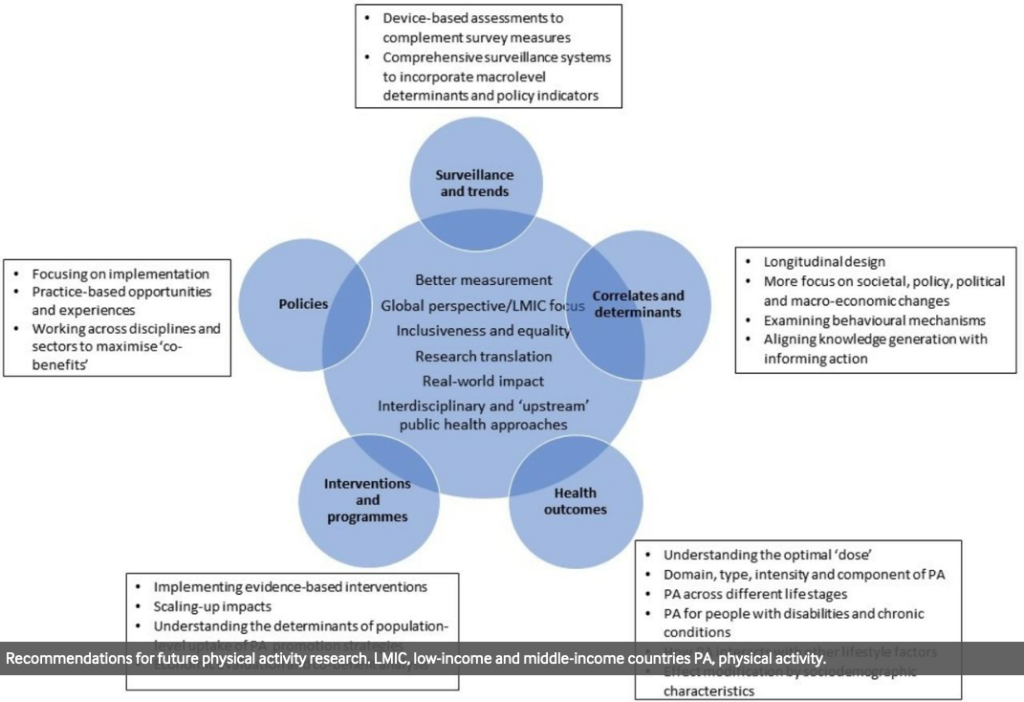Based on the Lancet series and other key developments in the field, literature searches, and expert group meetings and consultation, we provide a global summary on the progress of, gaps in and future directions for physical activity research in the following areas: (1) surveillance and trends, (2) correlates and determinants, (3) health outcomes and (4) interventions, programmes and policies.
Towards better evidence-informed global action: lessons learnt from the Lancet series and recent developments in physical activity and public health

- Surveillance: more and more countries collect physical activity surveillance data. Future surveillance should expand the use of device-based measures in combination with self-report and incorporate policy indicators.
- Correlates and determinants: research continues to be dominated by cross-sectional studies without explicit links to informing interventions. Future research should focus on macrolevel determinants, examine behavioural mechanisms and align knowledge generation with informing action.
- Health outcomes: knowledge has accumulated on a broadening range of health outcomes. Future research should continue to understand the ‘optimal dose’ of physical activity and build evidence on effects of domain, type, intensity and components of physical activity on various health outcomes across different life stages.
- Interventions, programmes and policy: most published studies continue to focus on individual approaches to behavioural change. Future endeavour should prioritise implementing evidence-based interventions, incorporate practice-based opportunities and experiences, work across disciplines and sectors, scale-up impacts and make translation a research priority.
- Across all areas, we recommend that physical activity research should be based on improved measurement and interdisciplinary and cross-sectoral collaboration, apply a global perspective and principles of inclusiveness and equity, and focus on research translation for real-world impact.

#science #chiropractor #chiropractic #research #education #evidence based #patient centered #interprofessional #collaborative #rehabilitation #public health #spinal health #musculoskeletal health #ethics #pain #function #disability #QOL


